10 Best Herbal Capsules For Ovulation Pain

Herbal capsules for ovulation pain are natural supplements designed to alleviate the discomfort associated with mittleschmerz, the mild pain some women experience during ovulation.
These capsules often contain herbs such as chasteberry, ginger, and evening primrose oil, which are known for their anti-inflammatory and pain-relieving properties. They are typically used as a complementary approach to manage symptoms without the side effects of conventional pain medications. While they may not cure the pain, they can help reduce its intensity and frequency.
It is important to consult with a healthcare provider before starting any herbal supplement to ensure safety and effectiveness.
Table of Contents
- 1. Chaste tree (Vitex agnus-castus)
- 2. Black cohosh (Cimicifuga racemosa)
- 3. Turmeric (Curcuma longa)
- 4. Fennel (Foeniculum vulgare)
- 5. White water lily (Nymphaea alba)
- 6. Stinging nettle (Urtica dioica)
- 7. Tree peony (Paeonia suffruticosa)
- 8. Thistle (Silybum marianum)
- 9. Dog rose (Rosa canina)
- 10. Nutgrass (Cyperus rotundus)
1. Chaste tree (Vitex agnus-castus)

Vitex agnus-castus, commonly known as chasteberry, is a herbal supplement often used to support hormonal balance and regulate menstrual cycles.
Herbal capsules containing vitex are believed to influence the hypothalamic-pituitary-ovarian axis, potentially aiding in the management of ovulation-related discomfort. Some women use vitex to alleviate symptoms such as pelvic pain or cramping associated with ovulation, though scientific evidence on its efficacy for this specific use remains limited. It is typically taken in capsule form as a dietary supplement, with recommended dosages varying based on individual health needs.
As with any herbal remedy, it is important to consult a healthcare provider before use, especially for those with existing medical conditions or taking other medications.
2. Black cohosh (Cimicifuga racemosa)
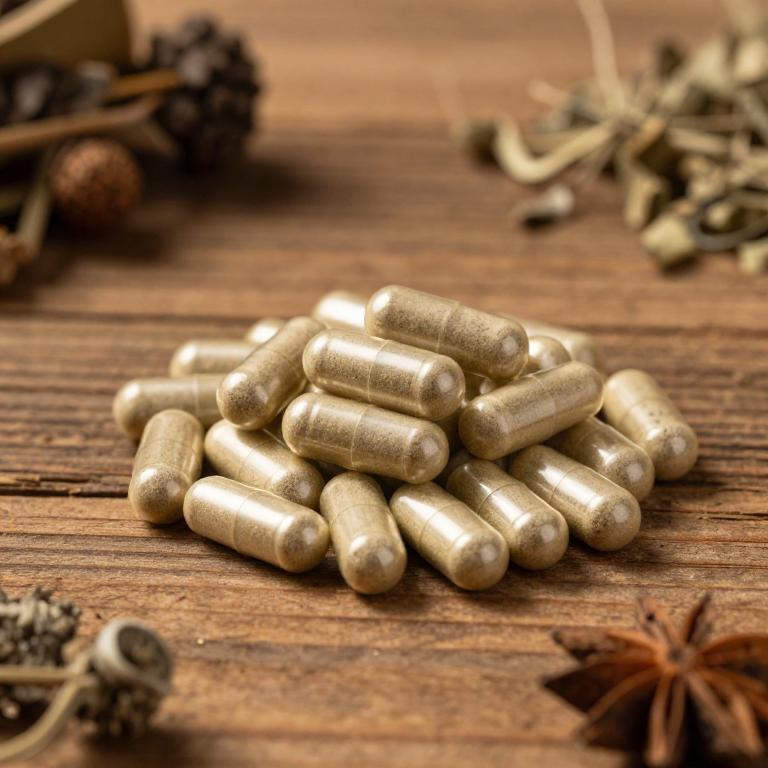
Cimicifuga racemosa, commonly known as black cohosh, is a herbal remedy that has been traditionally used to support women's health, particularly during menopause.
While it is often used to alleviate menopausal symptoms such as hot flashes and mood swings, some individuals have reported using it for its potential pain-relieving properties, including relief from ovulation pain. However, there is limited scientific evidence specifically supporting its effectiveness for ovulation-related discomfort. It is important to note that the safety and efficacy of Cimicifuga racemosa can vary, and it should be used under the guidance of a healthcare professional.
As with any herbal supplement, it may interact with other medications or have side effects, so careful consideration and consultation are essential.
3. Turmeric (Curcuma longa)

Curcuma longa, commonly known as turmeric, has been traditionally used for its anti-inflammatory and pain-relieving properties, making it a popular herbal remedy for managing ovulation pain.
The active compound in turmeric, curcumin, is believed to help reduce inflammation and discomfort associated with mittelschmerz, the pain some women experience during ovulation. When taken in the form of herbal capsules, curcuma longa offers a convenient and natural way to support menstrual health and alleviate cramping. However, it is important to consult with a healthcare provider before starting any herbal supplement, especially if you have underlying health conditions or are taking other medications.
While some studies suggest curcumin may help with pain management, more research is needed to fully understand its effectiveness for ovulation-related discomfort.
4. Fennel (Foeniculum vulgare)
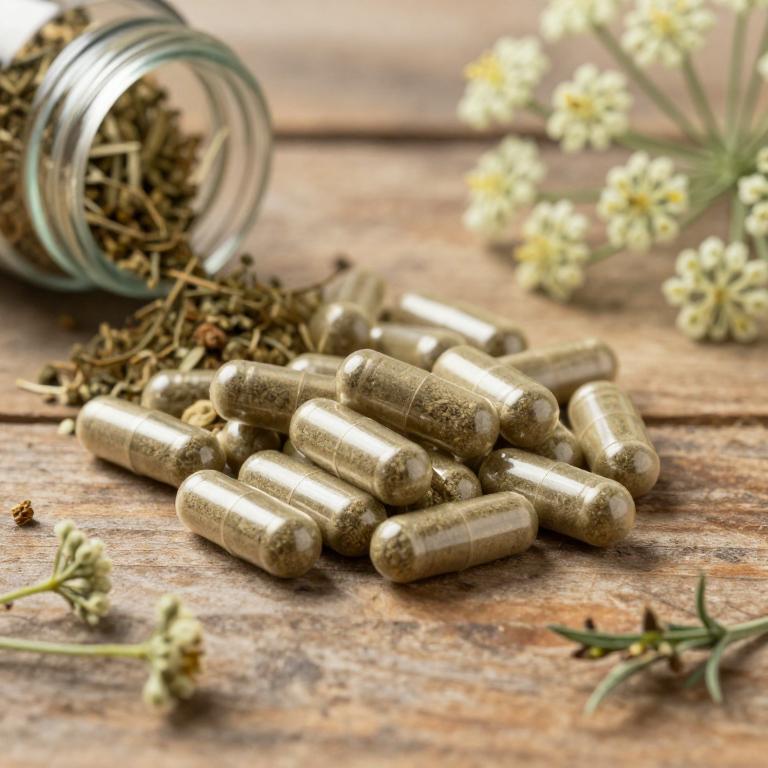
Foeniculum vulgare, commonly known as fennel, is often used in herbal capsules to support women's health, including addressing ovulation pain.
These capsules are believed to possess anti-inflammatory and analgesic properties that may help alleviate the discomfort associated with ovulation. Fennel seeds or extract in capsule form are typically taken orally, often as a dietary supplement to promote hormonal balance and ease menstrual cycle symptoms. While some studies suggest fennel may help reduce ovarian pain, it is important to consult a healthcare provider before use, especially for those with existing medical conditions or on other medications.
As with any herbal remedy, individual responses can vary, and results may not be immediate or consistent for everyone.
5. White water lily (Nymphaea alba)
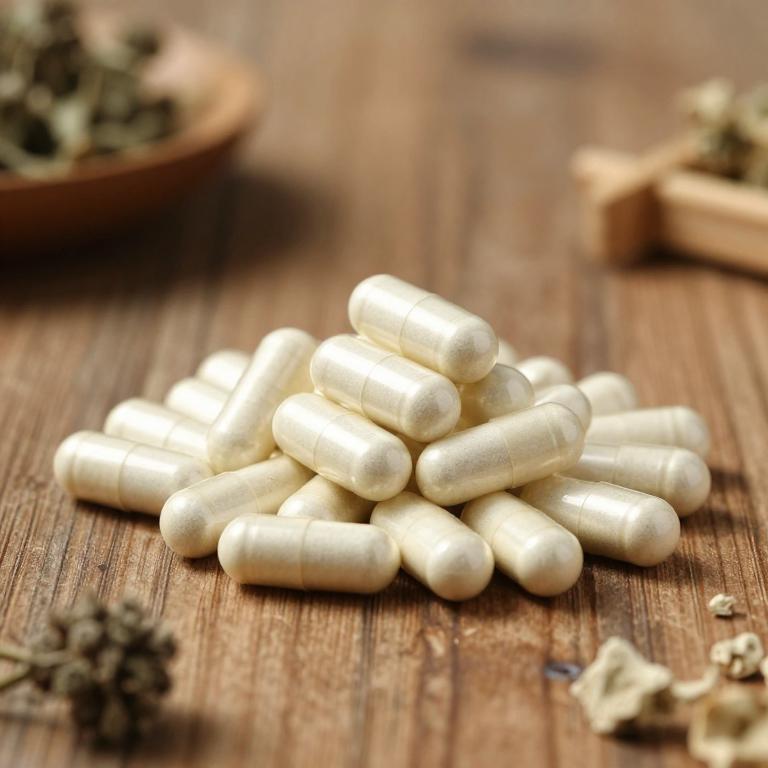
Nymphaea alba, commonly known as the white water lily, has been traditionally used in herbal medicine for its potential benefits in reproductive health.
Nymphaea alba herbal capsules are formulated to support women's health, particularly in managing symptoms associated with ovulation pain. These capsules contain bioactive compounds that may help reduce inflammation and ease discomfort during the menstrual cycle. The natural properties of Nymphaea alba are believed to promote hormonal balance and alleviate cramping related to ovulation.
As a complementary therapy, these herbal capsules may offer a gentle and holistic approach to managing ovulation-related pain.
6. Stinging nettle (Urtica dioica)

Urtica dioica, commonly known as stinging nettle, is a herbal remedy that has been traditionally used for its potential health benefits, including supporting hormonal balance and reducing inflammation.
Urtica dioica herbal capsules are often used by individuals experiencing ovulation pain, as they may help alleviate the discomfort associated with this natural process. The herb is believed to contain compounds that may support the body’s natural detoxification processes and regulate menstrual cycles. However, it is important to consult with a healthcare professional before using these capsules, especially if you have underlying health conditions or are taking other medications.
While some people report relief from ovulation pain with stinging nettle, scientific evidence supporting its effectiveness for this specific use is limited.
7. Tree peony (Paeonia suffruticosa)
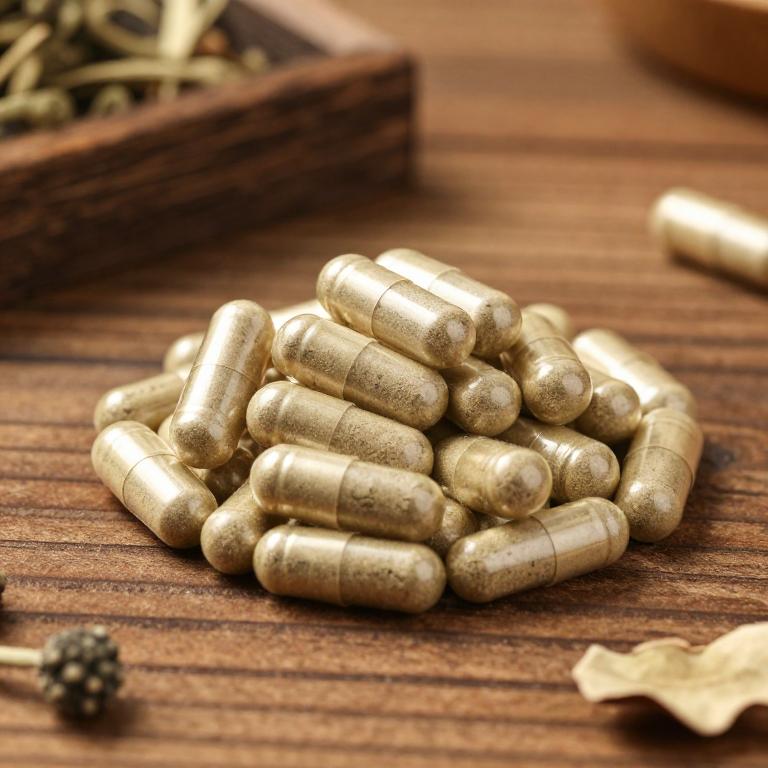
Paeonia suffruticosa, commonly known as tree peony, has been traditionally used in Chinese medicine for its purported ability to regulate menstrual cycles and alleviate menstrual pain.
Herbal capsules containing Paeonia suffruticosa are often marketed for their potential to support ovulation and reduce associated discomfort. These capsules are believed to work by improving blood circulation and reducing inflammation in the pelvic region. However, while some studies suggest possible benefits, more rigorous clinical research is needed to confirm their efficacy for ovulation pain.
It is important to consult with a healthcare provider before using these supplements, especially for women with pre-existing medical conditions or those taking other medications.
8. Thistle (Silybum marianum)

Silybum marianum, commonly known as milk thistle, is a herbal supplement that has been traditionally used for its potential health benefits, including liver support.
While it is not specifically marketed for ovulation pain, some individuals may use it to address inflammation and hormonal imbalances associated with menstrual discomfort. The active compound in milk thistle, silymarin, is believed to have antioxidant and anti-inflammatory properties that could help reduce pain and irritation. However, it is important to consult with a healthcare provider before using silybum marianum, as it may interact with certain medications or have side effects.
Overall, while it may offer some supportive benefits, it should not be considered a primary treatment for ovulation pain without professional guidance.
9. Dog rose (Rosa canina)
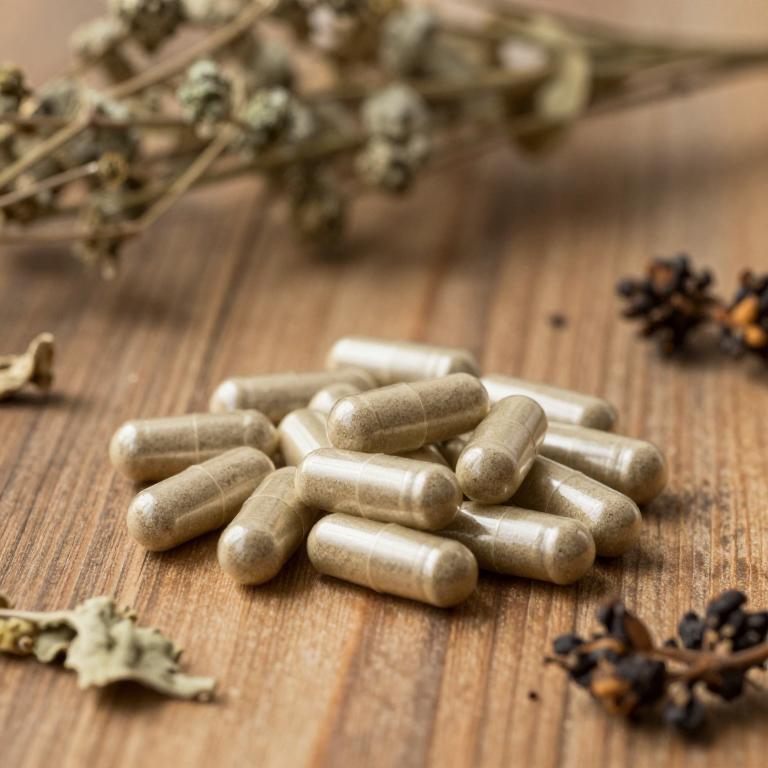
Rosa canina, also known as dog rose, is a traditional herbal remedy that has been used for centuries to support women's health, including its potential role in alleviating ovulation pain.
The herbal capsules containing Rosa canina are believed to possess anti-inflammatory and analgesic properties that may help reduce the discomfort associated with ovulation. These capsules are often recommended as a natural alternative to conventional pain relievers, particularly for women experiencing mild to moderate menstrual-related pain. The active compounds in Rosa canina, such as flavonoids and vitamins, are thought to promote hormonal balance and reduce uterine contractions.
However, it is important to consult with a healthcare provider before using Rosa canina, especially if you have underlying health conditions or are taking other medications.
10. Nutgrass (Cyperus rotundus)
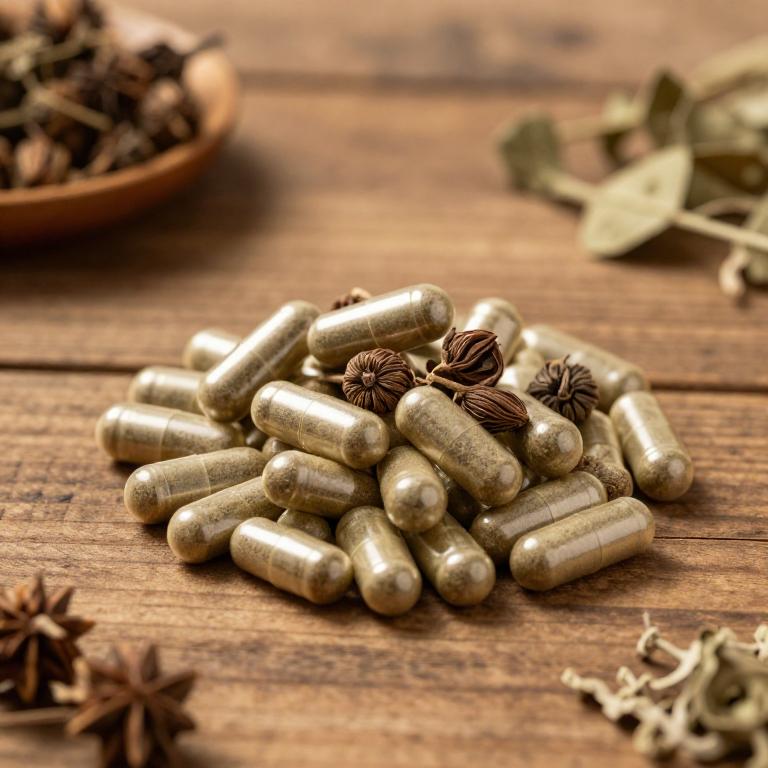
Cyperus rotundus, commonly known as nutgrass, has been traditionally used in herbal medicine for its potential benefits in reproductive health.
Herbal capsules containing Cyperus rotundus are often marketed for their ability to support menstrual regularity and alleviate ovulation-related pain. The plant is believed to possess anti-inflammatory and analgesic properties that may help reduce discomfort associated with ovulation. These capsules are typically made from standardized extracts of the plant's rhizomes and are often used as a natural alternative to conventional pain relievers.
However, it is important to consult with a healthcare provider before using these supplements, especially for individuals with underlying health conditions or those taking other medications.